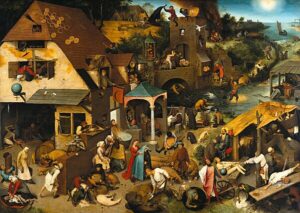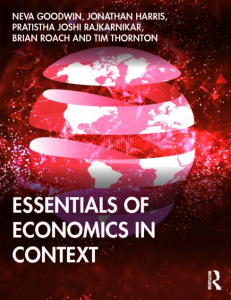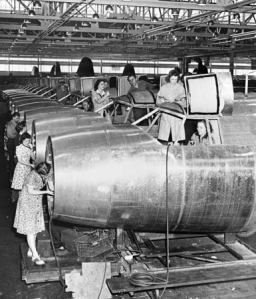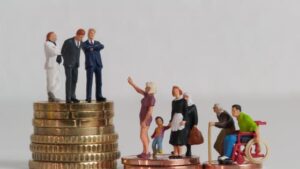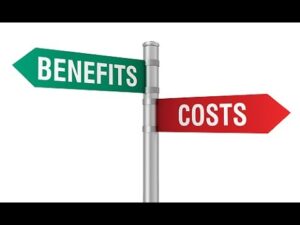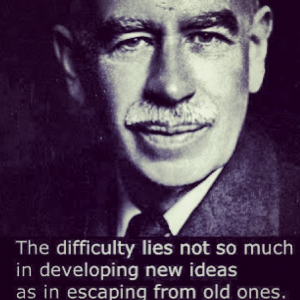MICROeconomics
Microeconomics is the study of individual markets, firms, organisations, groups, and individuals. This course is designed to provide you with a working knowledge of microeconomics and to assist you in making informed choices between competing approaches. The first half of the course covers the traditional microeconomic framework which is still very dominant in influencing public and social policy – and so deserves our careful attention for that reason alone. However, that framework has some severe limitations and so in second half of the course survey some alternative frameworks and the different policy implications that flow from those frameworks. It is assumed that people who enrol in this subject have already completed SPE101 An Introduction to Political Economy and Economics or have some prior knowledge of economics/political economy. However, people without such a background could perhaps cope though that learning curve will be a bit steeper.
Design: This subject is taught in ‘flipped classroom’ mode whereby you first view an online lecture at a time convenient to you, then undertake some suggested reading and then participate via zoom or in-person in a weekly 90 min discussion (with a short break at the 45 minute mark). Tutorial sizes have a maximum upper limit of 19 people (and in practice are typically less) in order to generate a conversational, easy-going and genuinely interactive experience. The lectures and readings are all downloadable and may be done whenever you like. The lectures can either be viewed, or simply listened to as podcasts. On-one-one help is provided whenever you need to clarify anything.
Dates and times
SPE104 will run in Term 1 2025 which starts Mon 27th of Jan with classes to be scheduled during the first half of that week. Register an expression of interest and you will be notified when enrolments open.
Cost (major currencies are listed below, contact us for costs in other currencies)
Australian Dollars AUD$250 (waged), AUD$200 (unwaged).
US Dollars US$170 (waged) US$130 (unwaged)
Euros EUR160 (waged) EUR130 (unwaged)
UK Pounds GBP140 (waged) GBP110 (unwaged)
Payment can be made via electronic funds transfer, credit card, paypal or money order.
Refunds: If you attend the first class and find that for some reason it is not what you are seeking then we can provide you with a (no questions asked) full refund – provided that we are notified within 7 days of your payment.
Assessment: There are regular questions and answers to allow you to self-test your knowledge, but the results of such self-tests are only available to you. Tutorial discussions are also a great opportunity to test and clarify your ideas. You can also get one-on-one assistance via email, phone or zoom when you need to confirm or clarify any aspect of the course.
Accreditation: If you attend at least 7 of the 10 classes, we can issue you with a record of completion which you are welcome to list on your CV.
Part 1 Traditional microeconomics
The purpose of this section of the course is not to celebrate the traditional framework as some type of magical looking glass that provides a full and reliable illumination of economic and social reality. Instead, the focus is on understanding the strengths and weaknesses of the traditional framework so as to allow you to make informed judgements about if, when and how it should be used in economic, social, and environmental analysis. The ideas are presented and discussed in descriptive and diagrammatic form so little, or no mathematics is involved. However, there are some optional (extra) learning resources for those who would like (or need) to have ideas translated across to mathematical form and so one-on-one assistance can be supplied if there is the need to discuss those learning resources.
Week 1. Supply and demand
We review coverage of supply and demand from SPE101 and then build on this coverage by taking a deeper look at elasticity (price responsiveness), externalities and other market failures. The emphasis is on allowing you to better interpret economic analysis. Extra (i.e. optional) readings and study plans will be provided for those who want to go deeper than this. For example, those who want to undertake applied analysis or those want more detail on some of limitations of the traditional framework.
Week 2. consumption
Here we look at how consumers are understood to make decisions within orthodox theory. We discuss budget lines, indifference curves and other related concepts. In doing so, we point out both strengths and limitations embedded in the traditional approach and flag some competing or at least, complementary approaches.
Week 3. Production
The focus here is on how firms produce things, why firms exist. We also look at how process of competition and cooperation are understood within traditional theory and flag some alternative theories of the firm. We then undertake an examination of labour economics, noting schools of thought within that area.
Week 4. welfare economics
Welfare economics is concerned with how economists identify what does (and does not) constitute an improvement to societal welfare. Within orthodox economics the key concepts are pareto efficiency and related spin-offs such as Hicks-Kaldor efficiency. We contemplate whether the usefulness frameworks for twenty-first century societies and survey some alternative measures of economic and social progress.
Week 5. cost-benefit analysis
Cost-benefit remains central to much applied economic analysis. We first explain the basic approach before undertaking a case-study of cost-benefit analysis in practice. Guided readings and study plans are available for those who would like to dig deeper into this area. These readings and study can be bespoke designed and thus include coverage of alternatives to standard cost-benefit analysis and /or building your capacity to undertake your own cost-benefit analysis.
Part 2. Alternatives To standard Microeconomics
There are strong reasons for anyone undertaking microeconomic analysis to have a working knowledge of approaches that go beyond the traditional framework.
Week 6. post-walrasian economics part 1
One of the limitations of orthodox analysis is the use of strongly unrealistic assumptions. Post-Walrasian economics reject two of these assumptions: (1) that we have fixed/given preferences and (2) that a complete legal contract that can be enforced without cost governs all economic exchanges. Relaxing these assumptions allows for some incorporation of power into economic analysis (among other benefits). In this first week of Post-Walrasian Economics we introduce the basic framework noting both its strengths and weaknesses as an alternative microeconomics
Week 8. ostrom, social governance and polycentric governance
In 2009 Elinor Ostrom (who defined herself as an institutional political economist) was awarded the Nobel Prize in Economics for her work in social governance and polycentric governance more generally. Both in theory and practice Ostrom demonstrated there is much governance that occurs beyond markets and states. Accordingly, the often sterile and ideologically driven market versus state debate is often a bad basis on which to try and understand and improve the world. In this week we look at the work of Ostrom and her colleagues, including how it can be applied to make sense of various environmental and social problems.
Week 9. institutional and post-keynesian economics Part 1
In the final week of semester, we examine a microeconomics that is constructed out of institutionalist and post-Keynesian thought. This approach is in a genuinely different paradigm to orthodox economics. It can claim to have a high level of internal coherence and to being constructed on much more realistic foundations in terms of its assumptions, ontology, and epistemology.
Week 10. institutional and post-keynesian economics Part 2
We continue our exploration of institutionalist-post Keynesian economics, including its policy implications as well as examining its compatibility with non-orthodox macroeconomics. This week’s content provides particularly useful for grounding for SPE104’s successor subject, SPE105 Macroeconomics.

